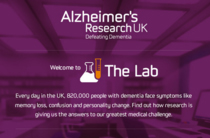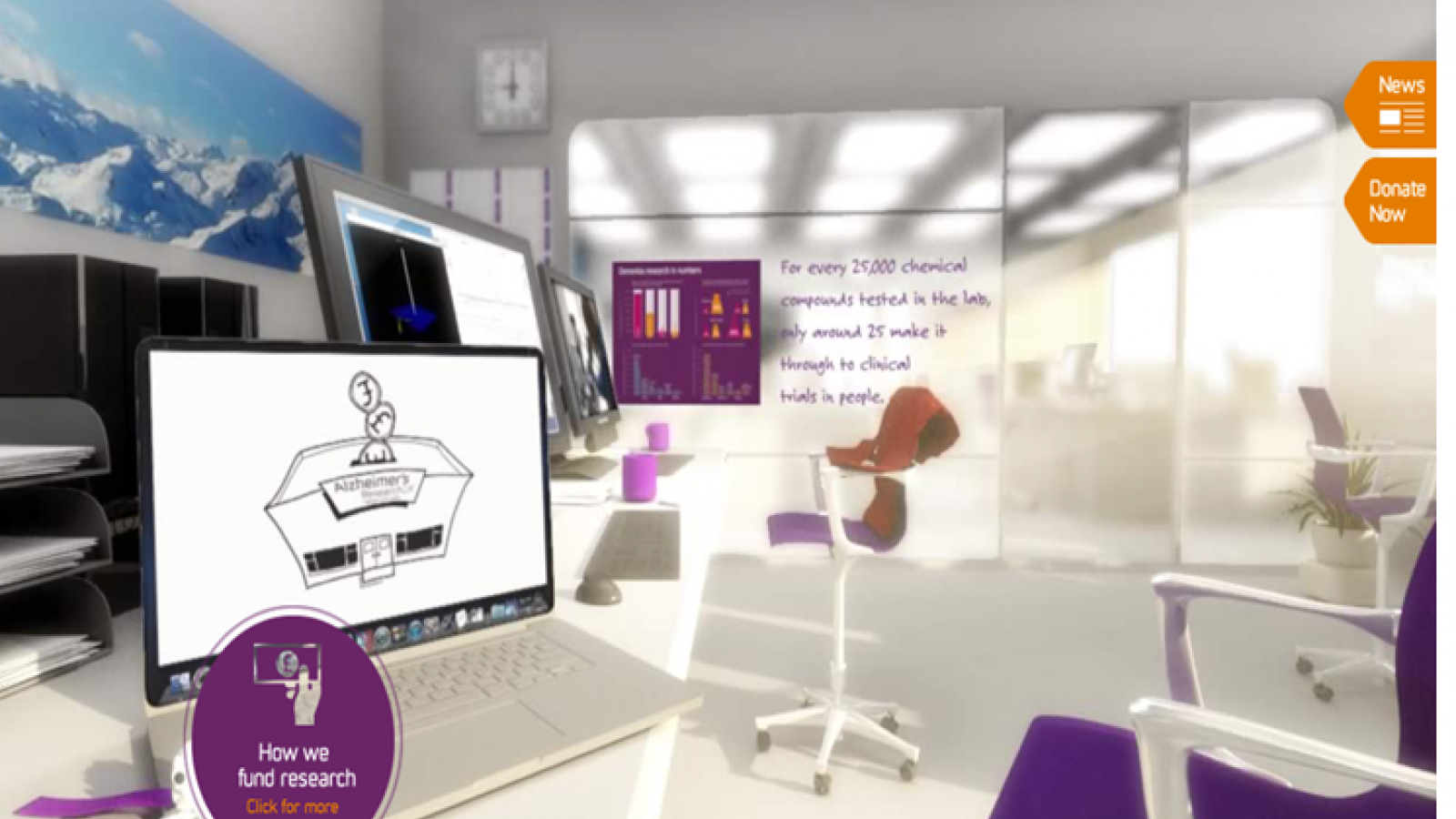 Last week, Alzheimer’s Research UK launched a virtual lab tour that takes users all the way through the stages of research, from funding projects to clinical trials. Their slick website is full of information on different aspects of dementia research including studying brain tissue under the microscope, searching for risk factors and modifying genes in fruit flies.
Last week, Alzheimer’s Research UK launched a virtual lab tour that takes users all the way through the stages of research, from funding projects to clinical trials. Their slick website is full of information on different aspects of dementia research including studying brain tissue under the microscope, searching for risk factors and modifying genes in fruit flies.
The lab is split into three main sections: Discovery, Development and The Clinic. Each section is packed with concise summaries and sharp videos explaining the promising avenues and challenges at each stage. The tour provides a powerful insight for the public into the range of work done by dementia scientists.
The site also highlights the importance of research using animals in developing new treatments. Getting drugs to reach the brain is particularly difficult because of the blood-brain barrier – the body’s defence system to protect the brain from microbes and toxins in the blood. This means animal research is crucial to assess the effectiveness of new treatments, as this cannot be modelled sufficiently in cell cultures. As the website says:
“Without these studies, there would be no medicines available for people living with dementia. Research using animals continues to be vital in the ongoing search for new treatments that can slow or stop the disease process.”
Alzheimer’s Research UK have previously been praised (Charities doing animal research outreach right) for their openness on the need for animal research based on their leaflet ‘Why research using animals can help defeat dementia’. Initiatives like this are important for helping the public to see how research works. All too often, labs are perceived as being closed-off despite public interest in science. Hopefully we will see more organisations follow ARUK’s lead.
Last edited: 23 March 2022 15:59



